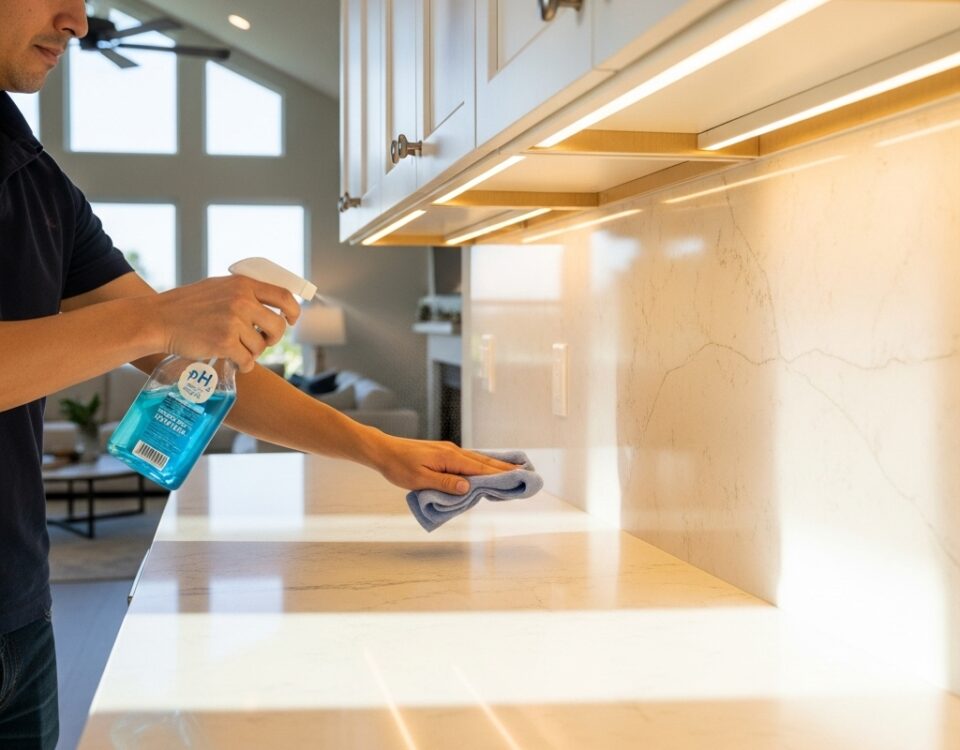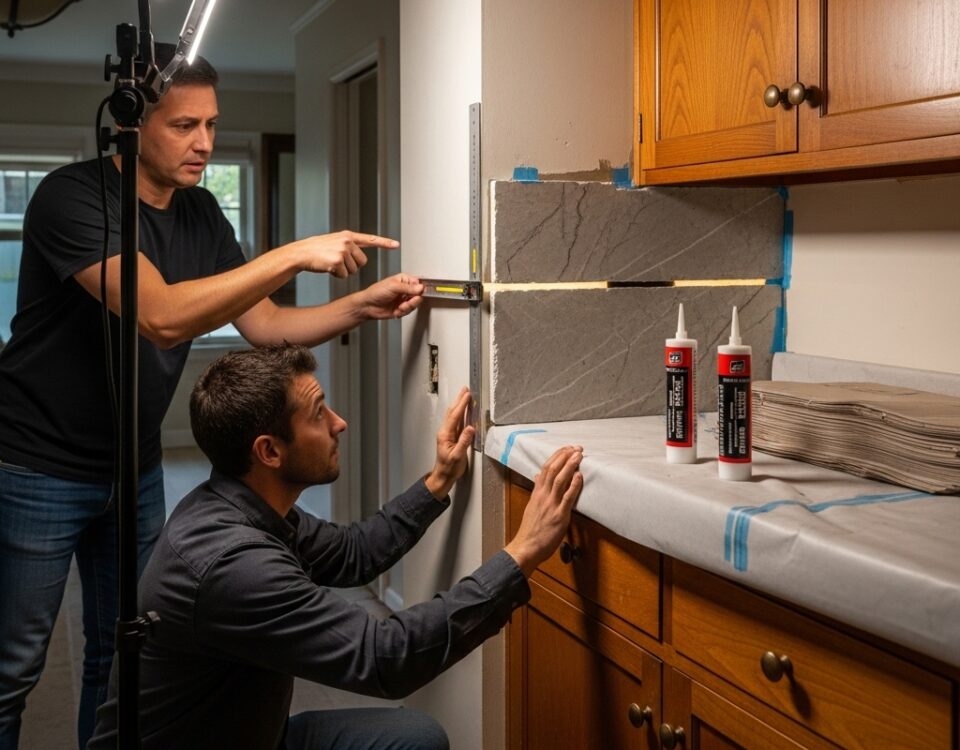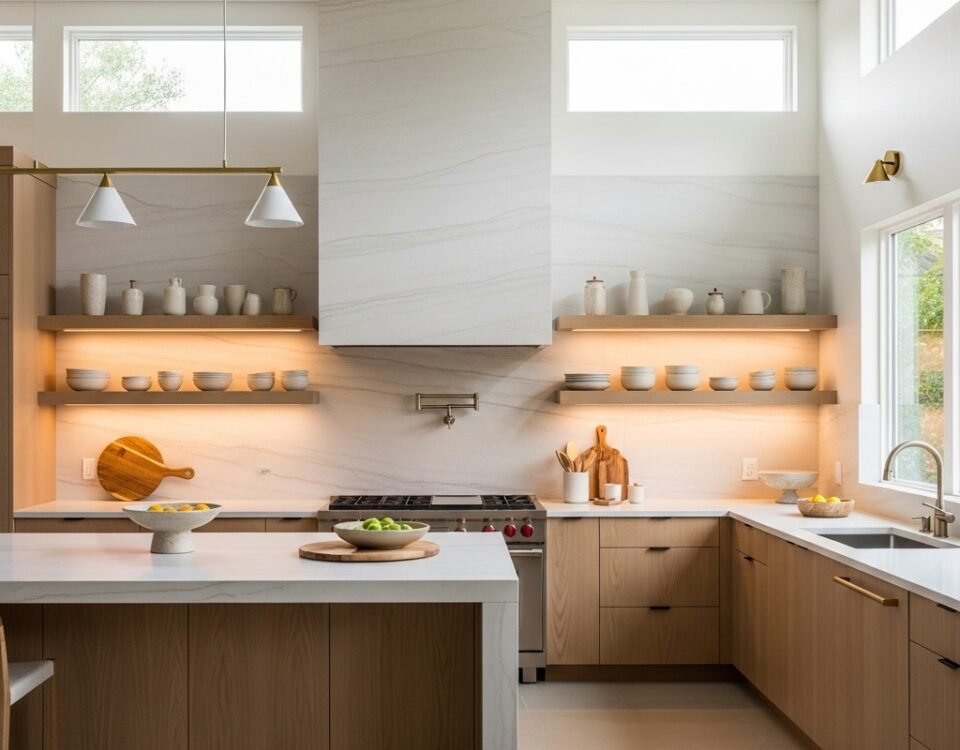Top Reasons to Visit Thousand Oaks Community Park: Casa Conejo’s Perfect Outdoor Escape
September 12, 2024How to Maintain Your Backsplash Granite Slabs for Lasting Beauty
September 20, 2024Backsplash Granite Slabs Vs. Quartz: Which Is Right for Your Kitchen?
Selecting the ideal Backsplash for your kitchen involves a nuanced consideration between granite slabs and quartz. Granite, a natural stone, offers unparalleled uniqueness with its intricate veining and patterns, and it excels in high-traffic areas due to its formidable heat and scratch resistance. Conversely, quartz, an engineered stone, provides a consistent, modern aesthetic with superior non-porous qualities, resisting stains and bacterial growth. Each material presents distinct benefits, but which aligns best with your kitchen’s aesthetic and functional demands? This critical decision warrants a closer examination of both materials’ features and maintenance requirements.
Granite Slabs
When considering backsplash options for kitchen and bathroom renovations, granite slabs stand out as a premium choice due to their unparalleled durability and natural beauty. Granite, an igneous rock formed from cooled magma, exhibits a unique blend of minerals, including quartz, feldspar, and mica, which contribute to its exceptional hardness and aesthetic appeal. Its distinct veining and speckled patterns make each slab unique, adding a personalized touch to any space.
From a technical perspective, granite slabs offer several advantages that make them ideal for backsplashes. Their high resistance to heat and scratches ensures longevity, even in high-traffic areas. Additionally, granite’s low porosity, especially when properly sealed, makes it resistant to stains and easy to clean, thereby reducing maintenance efforts.
Industry professionals often recommend granite for homeowners seeking both functionality and elegance. The installation of granite slabs requires precision and expertise, typically involving custom cutting and fitting to ensure seamless integration with countertops and cabinetry. This meticulous process underscores the importance of working with experienced fabricators and installers to achieve optimal results.
Incorporating granite backsplashes into kitchen or bathroom designs not only elevates the aesthetic value but also provides a robust, long-lasting solution that resonates with those who appreciate quality craftsmanship and timeless beauty.
Quartz Backsplashes
Quartz backsplashes offer a modern and versatile alternative that combines both aesthetic appeal and practical benefits. Engineered from a blend of natural quartz and resin, quartz surfaces are renowned for their durability and uniform appearance. Unlike natural stone, quartz is non-porous, making it inherently resistant to stains, bacteria, and mold, which is particularly advantageous in high-moisture environments like kitchens.
One significant advantage of quartz backsplashes is the extensive range of colors and patterns available. This allows homeowners to achieve a cohesive look with their countertops, often providing a seamless transition between the two. The consistency in patterning also means that design continuity is easier to maintain, catering to those who prefer a minimalist or contemporary aesthetic.
From a maintenance perspective, quartz is relatively low-effort. It does not require sealing, unlike granite, and can be cleaned with simple soap and water. Additionally, its resilience to scratches and heat makes it a practical choice for busy kitchens.
For those seeking a combination of beauty and functionality, quartz backsplashes present a compelling option. The material’s engineered properties provide both visual harmony and long-term durability, making it a prudent investment for modern kitchen designs.
Read More:
How to Maintain Your Backsplash Granite Slabs for Lasting Beauty




